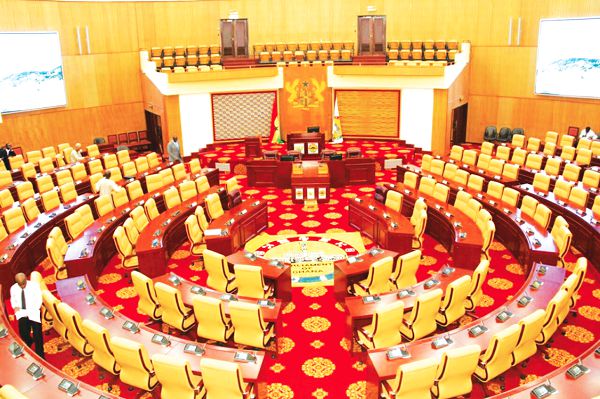Parliament has passed into law, the Anti-Money Laundering Bill, 2020 to address strategic deficiencies identified in the country’s anti -money laundering regulatory framework.
Among other things, the law will grant supervisory mandate to the Financial Intelligence Centre to provide for an effective, proportionate and dissuasive sanctions regime for various money laundering infractions, and to clearly designate an anti-money laundering and counter financing of terrorism supervisor for designated non-bank financial businesses and professions.
In 2009, Ghana was blacklisted by FATF as a result of a mutual evaluation exercise on Ghana by the Inter-Governmental Action Group against money laundering in West Africa (GIABA) in respect of the FATF 40+9 recommendations.
Following this exercise, the Government of Ghana took measures to address some of the deficiencies which subsequently put the country in the ‘grey list’ after a second round of exercise which was conducted in 2016.
According to information published on the website of FATF, the country has made some progress in its AML/CFT regime but should work hard in: implementing a comprehensive national AML/CFT Policy based on the risks identified in the National Risk Assessment (NRA), including measures to mitigate ML/TF risks associated with the legal persons; and improving risk-based supervision, by enhancing the capacity of the regulators and the awareness of the private sector.
The rest include ensuring the timely access to adequate, accurate and current basic and beneficial ownership information; ensuring that the Financial Intelligence Centre is focusing its activities on the risks identified in the NRA and adequately resourced; and applying a risk-based approach for monitoring non-profit organisations.
This notwithstanding, Ghana still has not met the revised FATF methodology, as the report of the second evaluation exercise identified some strategic deficiencies in the anti-money laundering regulatory framework, resulting in the European Union (EU) placing the country on the list of countries that is seen as posing significant threat to the financial system of the Union after it failed to meet some requirements earlier in the year. But due to the global pandemic, the union suspended enforcement of the list but has confirmed it has entered into full force beginning October 1, 2020.
In order to address these deficiencies and comply with the recommendations, government therefore decided to review relevant laws, key among which is the Anti-Money Laundering Act, 2007 (Act 749).
In a contribution during the consideration stage of the Bill, prior to its passage, Minority Leader, Haruna Iddrisu, raised concerns about governments failure of prosecuting defaulters of the country’s money laundering laws, even though the country has been cited to have breached some rules that resulted to being blacklisted.
“What is it that having been blacklisted, we have not seen anybody being punished for any action being associated for money laundering, for which reason our country is being blacklisted?
So we need to show political will. If you have an anti-money laundering regime, it makes it criminal to engage in it,” The Tamale South MP said.
The Anti-Money Laundering Bill, 2020 was first presented to Parliament and read the first time on the 5th November, 2020.










